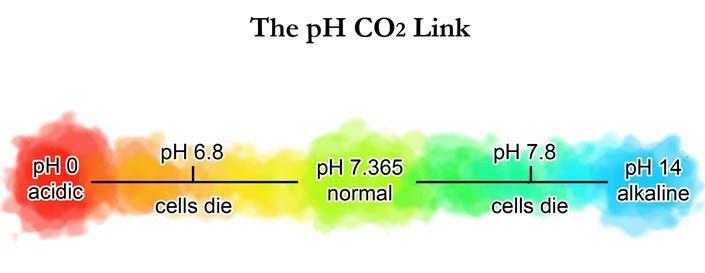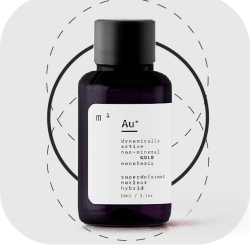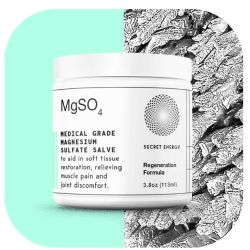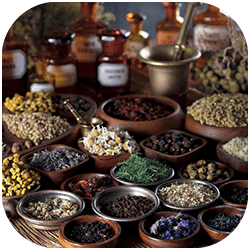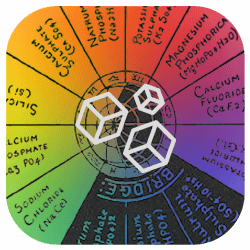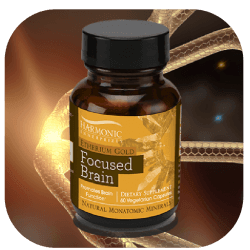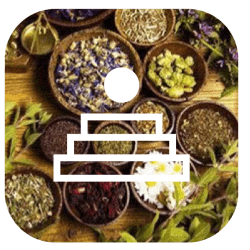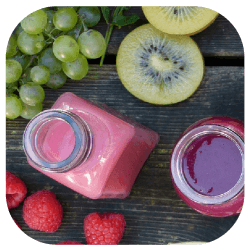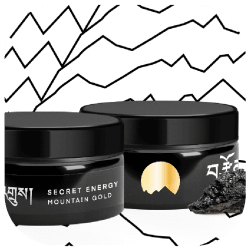Scientists can tell how foods will react inside the body by incinerating the food and analyzing the mineral content of its ash. If the mineral content is highly alkaline, then the food will likely have an alkalizing effect on the body, and vice versa.
In other words, how the body reacts to certain foods is what determines what foods are alkaline-forming and what foods are acid-forming.
For example, lemons are acidic in nature but have an alkalizing effect on the body once they are digested. Similarly, milk is alkaline outside the body, but acidic upon digestion. The type of soil used to grow fruits and vegetables can influence their mineral content and test results can vary. As a result, different charts can report slightly different pH levels of the same foods.
To maintain health, the diet should consist of 60% alkaline forming foods and 40% acid-forming foods.
To restore health, the diet should consist of 80% alkaline forming foods and 20% acid-forming foods.
Use this alkaline-acid foods list as a general guide and don’t worry if one chart is slightly different from another.
The small differences in degree ultimately won’t make a huge difference. What will make the biggest difference is replacing processed foods with fresh foods and adding more fruits and vegetables to your diet.
Highly Alkaline
baking soda, chlorella, dulse, lemons, lentils, limes, lotus root, mineral water, nectarine, onion, persimmon, pineapple, pumpkin seed, raspberry, sea salt, sea vegetables, seaweed, spirulina, sweet potato, tangerine, taro root, umeboshi plums, vegetable juices, watermelon
Moderately Alkaline
apples, apricots, arugula, asparagus, banchi tea, beans (fresh green), broccoli, cantaloupe, carob, carrots, cashews, cayenne, chestnuts, citrus, dandelion, dandelion tea, dewberry, edible flowers, endive, garlic, ginger (fresh), ginseng tea, grapefruit, herbal tea, herbs (leafy green), honeydew, kale, kombucha, kelp, kiwifruit, kohlrabi, loganberry, mango, molasses, mustard green, olive, parsley, parsnip, passion fruit, peas, pepper, raspberries, soy sauce, spices, sweet corn (fresh), turnip
Low Alkaline
almonds, apple cider vinegar, apples (sour), artichokes (Jerusalem), avocado, bell pepper, blackberry, brown rice vinegar, cabbage, cauliflower, cherry, cod liver oil, collard green, egg yolks, eggplant, ginseng, green tea, herbs, honey (raw), leeks, mushrooms, nutritional yeast, papaya, peach, pear, pickles (homemade), potato, primrose oil, pumpkin, quail eggs, radishes, rice syrup, rutabaga, sake, sesame seed, sprouts, watercress
Very Low Alkaline
alfalfa sprouts, avocado oil, banana, beet, blueberry, Brussel sprouts, celery, chive, cilantro, coconut oil, cucumber, currant, duck eggs, fermented veggies, flax oil, ghee, ginger tea, grain coffee, grapes, hemp seed oil, japonica rice, lettuces, oats, okra, olive oil, orange, quinoa, raisin, sprouted seeds, squashes, strawberry, sunflower seeds, tahini, tempeh, turnip greens, umeboshi, vinegar, wild rice
Now, to clarify, people came to us asking about how to be as alkaline as possible, but it doesn’t work that way as the key is to find balance.
The sheer act of breathing has the ability to raise and lower our blood pH mainly due to oxygen and if you can work together with your mind on those breathing exercises the results can be even better.
The human blood pH should be slightly alkaline (7.35 – 7.45).
Below or above this range means symptoms and disease.
A pH of 7.0 is neutral.
A pH below 7.0 is acidic.
A pH above 7.0 is alkaline.
An acidic pH can occur from an acid forming diet, emotional stress, toxic overload and/or immune reactions, or any process that deprives the cells of oxygen and other nutrients. The body will try to compensate for acidic pH by using alkaline minerals. If the diet does not contain enough minerals to compensate, a build up of acids in the cells will occur. An acidic balance will: decrease the body’s ability to absorb minerals and other nutrients, decrease the energy production in the cells, decrease its ability to repair damaged cells, decrease its ability to detoxify heavy metals, make tumor cells thrive, and make it more susceptible to fatigue and illness.
A blood pH of 6.9, which is slightly acidic, can induce coma/death.
The reason acidosis is more common in our society is mostly due to the typical American diet, which is far too high in acid producing animal products like meat, eggs, and dairy, and far too low in alkaline producing foods like fresh vegetables. Additionally, we eat acid producing processed foods like white flour and sugar and drink acid producing beverages like coffee and soft drinks. We use too many drugs, which are acid forming, and we use artificial chemical sweeteners like NutraSweet, Spoonful, Sweet ‘N Low, Equal, or Aspartame, which are poison and very acid forming. Also on the list, you may see honey as very low acidic (not that bad) instead of alkaline, but the benefits of honey largely compensate. One of the best things we can do to correct an overly acidic body is to clean up the body, adopt a healthy diet/lifestyle, and alkalize your body.
Very Low Acidic
amaranth, black-eyed peas, brown rice, butter, canola oil, chutney, coconut, cream, curry, dates, dry fruit, fava beans, figs, fish, gelatin, goat cheese, grape seed oil, guava, honey, kasha, Koma, coffee, maple syrup, millet, organs, pine nuts, pumpkin seed oil, rhubarb, sheep cheese, spinach, string beans, sunflower oil, triticale, venison (deer), vinegar, wax beans, wild duck, zucchini
Low Acidic
adzuki beans, aged cheese, alcohol, almond oil, balsamic vinegar, black tea, boar, buckwheat, chard, cow milk, elk, farina, game meat, goat milk, goose, Kamut, kidney beans, lamb, lima beans, milk, mollusks, mutton, navy beans, pinto beans, plum, red beans, safflower oil, seitan, semolina, sesame oil, shellfish, soy cheese, spelt, tapioca, teff, tofu, tomatoes, turkey, vanilla, wheat, white beans, white rice
Moderately Acidic
barley groats, basmati rice, bear, casein, chestnut oil, chicken, coffee, corn, cottage cheese, cranberry, egg whites, fructose, garbanzo beans, green peas, honey (pasteurized), ketchup, lard, maize, mussels, mustard, nutmeg, oat bran, olives (pickled), other legumes, palm kernel oil, pasta (whole grain), pastry, peanuts, pecans, pistachio seeds, pomegranate, popcorn, pork, prunes, rye, snow peas, soy milk, squid, veal
Highly Acidic
artificial sweeteners, barley, beef, beer, Brazil nuts, breads, brown sugar, cocoa, cottonseed oil, flour (white), fried foods, fruit juices with sugar, hazelnuts, hops, ice cream, jam / jelly, liquor, lobster, malt, pasta (white), pheasant, pickles (commercial), processed cheese, seafood, soft drinks, soybean, sugar, table salt, walnuts, white bread, white vinegar, whole wheat foods, wine, yeast, yogurt (sweetened)
Please check out our course on Internal Cleansing if you would like to learn more about how the food we eat affects us.


